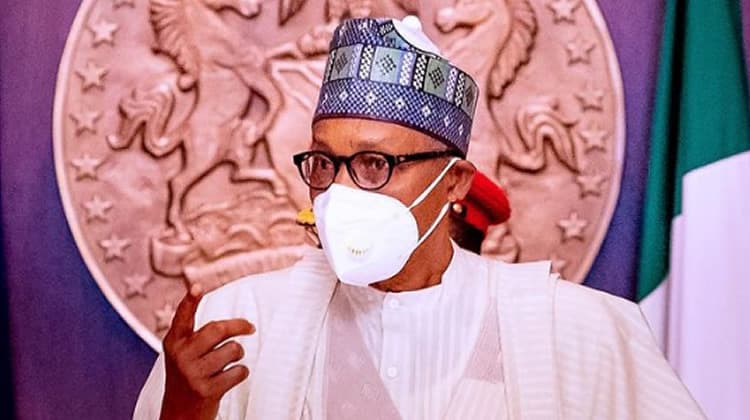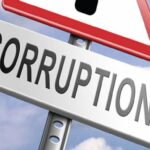Last week, the Daily Trust on Sunday reported an in-depth investigation into the government’s whistle blowing policy since its inception in 2016. The whistle blowing policy was designed to encourage Nigerians to come forward with information and evidence of corruption, which in turn will help result in increased prosecution and conviction of public officials with unexplained or ill-gotten wealth. At its peak in 2017-2018, the policy is said to have helped the federal government recover some N700 billion through a series of spectacular revelations.
But as the Daily Trust report shows, interest in further disclosures has since waned at the Ministry of Finance, Budget and National Planning where the policy originated. Worse than that, several whistle-blowers were not paid their entitlements as promised by the policy, but were instead exposed to vindictive backlash from many of those exposed. Whistleblowers, the report makes clear, have become an endangered species under government that has made anti-corruption one of its focal policies.
- Gombe acting CJ swears-in 24 new magistrates
- Despite containment measures, gunmen continue violent campaigns in Kaduna, Katsina
Whistleblowing is an effective, low-risk and cheaper mechanism for fighting corruption and other high-level political crimes because it leads authorities straight to stolen wealth the corrupt officials cannot explain, thereby increasing the chances of both convictions and recoveries, and ultimately deterrence. However, whistle-blowing depends not just on the quality and timeliness of information provided whistle-blowers, regardless pf their motivation, but also on the physical and legal protections the government offers to whistleblowers.
This is why in many countries where the whistleblowing policy is in use, it is usually accompanied with enabling legislations to protect potential or past whistleblowers, particularly in relation to their identity. Thus, part of the failure of the whistle-blowing policy in the past five years is the levity with which the authorities have treated the identities of the whistleblowers, making them an easy target of backlash and victimisation by the officials they exposed.
While we are troubled that the government would treat such an important anti-corruption policy with kid gloves, we note that it is not just the whistle-blowing policy that has since petered off but the entire anti-corruption agenda of the government. While speaking at the 3rd National Summit on Diminishing Corruption held barely a month ago on 30th November 2021, the Chairman of the Independent Corrupt Practices and Other Related Offences (ICPC), Professor Bolaji Owasanoye disclosed that some civil servants might have found a way around the Integrated Payroll and Personnel Information System (IPPIS), “A syndicate of corrupt individuals within the service corruptly employ unsuspecting Nigerians, issue them fake letters of employment, fraudulently enrolling them on IPPIS and post them to equally unsuspecting MDAs to commence work”. While the ICPC Chairman was speaking in the context of the work of his Commission, his comments are at once an indictment of the IPPIS system, a policy designed specifically to curb the fraudulent practice of ghost workers in Nigeria.
In addition, the prosecution of high-level corruption involving Politically Exposed Persons (PEPs) has all but stalled under the current government, after a flurry of cases involving officials of previous governments at the federal and state levels. Specific sectors generally prone to corruption such as security votes and others have gone unchecked, even as budget padding and other forms of financial improprieties are soaring, as the ICPC Chairman disclosed during the same Summit.
Most worrisome still, the government’s anti-corruption agenda continues to suffer from political interference. In a report released two weeks ago, “Twenty Years of Anti-Corruption Efforts in Nigeria: A Critical Look”, the Centre for Democracy and Development shows that it remains easy “for vested interests to delay or derail high-level corruption prosecutions” in Nigeria.
Hardly any of these is surprising however. Anti-corruption is no more than a ‘mantra’ proclaimed by many political candidates or parties, but who, once in government, pay lip-service to same. But while we fear that this government’s anti-corruption agenda might go the same way, we believe that there is still some time to breathe new life into its fight against graft, particularly at the highest level.
Fighting corruption is a difficult and slow undertaking but, with the required commitment and resolve, this government could still re-jig its fight against corruption. The government should begin with a wholistic performance review of its own anti-corruption policies such as the Treasury Single Account (TSA), IPPIS and the Whistle-Blowing policy with a view towards strengthening them to better accomplish their objectives.
Anti-corruption agencies like the Economic and Financial Crimes Commission, the Code of Conduct Bureau, and the ICPC are all have high-profile cases in various courts, some under prosecution for over 10 years. The federal government could mandate the heads of these agencies to bring a minimum number of these cases to completion, regardless of the party affiliations of those involved or whichever way the courts decide.
The government should also produce a comprehensive report of all assets recovered since 2015, and mandate all current senior elected and appointed officials to declare their assets when they are due to vacate office. It is time to revive the anti-corruption agenda because as corruption does not sleep, the fight against it cannot.

 Join Daily Trust WhatsApp Community For Quick Access To News and Happenings Around You.
Join Daily Trust WhatsApp Community For Quick Access To News and Happenings Around You.


